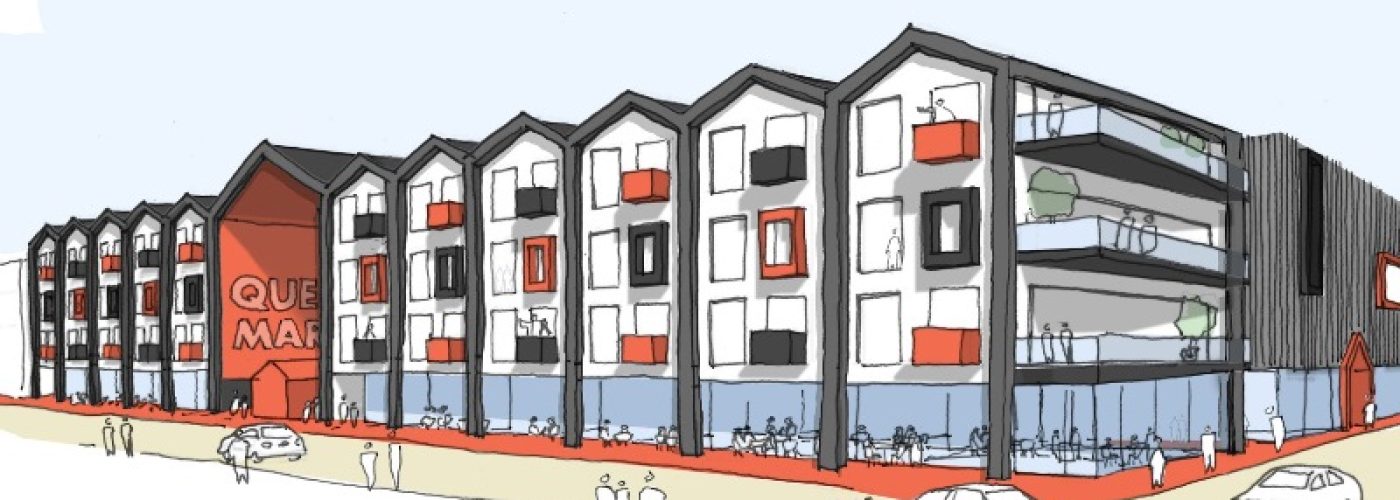Denbighshire County Council and its partners are discussing plans to turn Rhyl’s Queen’s Buildings into a pivotal piece in the ongoing regeneration of the town. The talks revolved around the transformation of the site into a vibrant mix of retail, food and beverage, contemporary market, office and residential space while improving accessibility from the waterfront and promenade into the town centre.
In addition, plans could also include an open courtyard and public space in the £30 million plus development, which includes the former Savoy Hotel and Queen’s Market buildings. Currently, work is progressing on the initial designs, costings and viability of the project, which forms part of the long term vision for Rhyl Town Centre exhibited in the former Granite Outdoors shop at the beginning of April, before a planning application is submitted later this year.
“We see the Queen’s Buildings as key in the regeneration of Rhyl. This site will be pivotal in linking the regeneration on the waterfront to the town centre and providing a fantastic offer in its own right. This project can transform the town centre,” said Graham Boase, the Council’s Corporate Director for the Economy and Public Realm.
“After 12 months of working with businesses, residents and visitors to Rhyl the feedback was that the town centre needed a vibrant market space to draw people into the town centre and increase footfall. This will help support and grow businesses and our vision sees local, independent traders as central to this, creating jobs and opportunities locally. Parts of the buildings are in very poor condition and whilst we will try and retain as much of the original architecture as possible, there will inevitably be areas that will need to be demolished,” Graham added.
The project is being funded by Denbighshire County Council, the Welsh Government and the European Regional Development Fund. The site will remain open in the coming months with current occupiers continuing to trade.
The Council recently opened the £15 million SC2 attraction and other investment includes the 1891 restaurant and remodelling of the Pavilion Theatre, while private sector investment encouraged by the Council has seen the opening of two new hotels.
The Council and the previous owners have found no remaining sections of the former Little Venice attraction despite extensive work being carried out on the building over a number of years. As the project develops there will be further excavation work taking place on the site.
A pre-planning consultation will be launched later this summer offering residents and businesses the chance to have their say on the more detailed plans as part of the ongoing project consultation.





